VOC's Travel BLOG
Our Travel Blog is the place to share our real life, travel experiences in China with you. Besides, we will provide information related to Chinese culture and China travel guide. "A bosom friend afar brings a distant land near." Traveling makes us to be closer, let's discover China together!
All
China travel Guide(228)
China Food(38)
Life in Guilin(48)
Working at VisitOurChina(24)
Cultures(40)
News(12)
Qingming Festival 2012 falls on April 4
2012-03-31 | Cultures

As one of the 24 Chinese solar terms and an important traditional festival of China, Qingming Festival usually falls on the 4th, 5th, or 6th of April every year. Commonly translated to be Tomb-Sweeping Day or Pure Brightness Festival in English, it always comes on the 103rd day (one day later in leap years) after the winter solstice. For more than 2500 years, Chinese have been going to tidy up their ancestors tombs and burn joss sticks and paper money to show respect and express love.
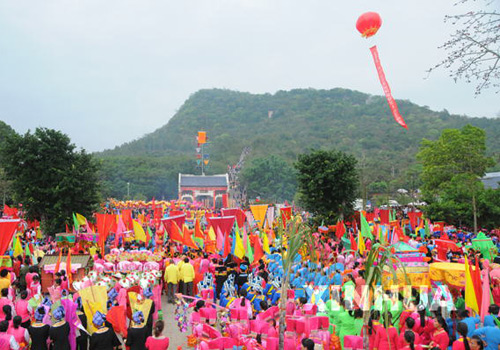
As a native Zhuang peopleof Tianyang, I had realized that there is a very important festival of our own in my hometown and it always happens from the 7th to 9th days of the third lunar month every year since I was still a little girl, but actually never had I been on the scene personally due to the strict school regulations (It's hard to ask for leave except getting ill, I mean). So what I have in mind about the festival all the time is just a sentence summarized from bitty descriptions of others: Tens of thousands of people from my county and our vicinity go to Ganzhuang Mountain to worship Buluotuo (Creator of Zhuang) and hold a folk song fair there on the three days every year. In a word, this festival was just a festival known to only tens of thousands of people before it was announced to be National Cultural Heritage of Chinaand a live telecast of it was broadcast to the world by CCTV 4 in April of 2006.
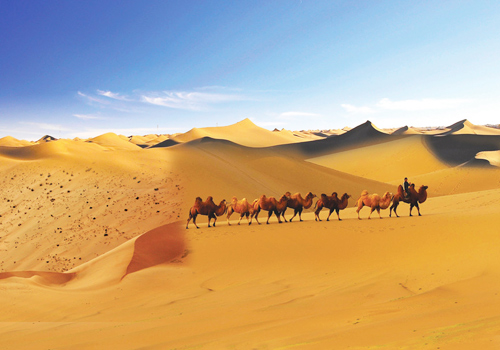
The ancient Silk Road of China is a renowned commercial and cultural route opened up some 2000 years ago by the Chinese envoy Zhang Qian of Han Dynasty (202BC-220AD). With the purpose of building friendly relationships among China and other central and western Asian countries as well as some European ones, many Chinese products were taken along with the Silk Road, such as silk, satin, tea, bronze and porcelain; and likewise, plenty of other exotic specialties were brought back- spices, textiles, ivory, perfumes and precious stones from India, and gold, silver, jewels, carpets and wine from Roman. With silk being the major item traded along the route, thus its name of this world famous Silk Road, along which some other medicines, techniques and religions were also exchanged, and in the history, the camels, which is honored as the ship of the desert, are the major vehicles of the Silk Road.
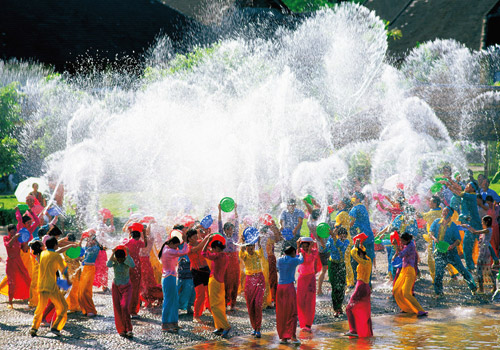
The Tibetan New Year is the most important festival in a year for Tibetan people. The formal celebration starts from the first day of the first month in Tibetan calendar and lasts for 15 days, but preparations are usually made one month early. As a way of welcoming the New Year, all the men and boys have to have their head shaved, correspondingly, women and girls will wash and comb their hair. An overall house cleaning is always needed before the festival, but the cleaning of ceiling and chimney should be done on auspicious days such as the dates of 3, 5, 7, 9, etc.
Wedding Customs of Ethnic Minorities in Guangxi
2011-11-25 | Cultures
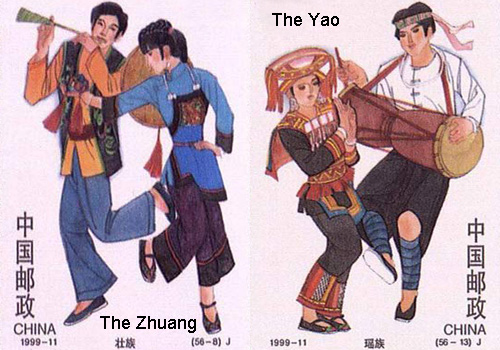
As one of China's five ethnic autonomous regions (Guangxi, Tibet, Xinjiang, Inner Mongolia, Ningxia - equivalent to five provinces), Guangxi Zhuang Autonomous Region is in fact the habitation of many Chinese ethnic groups, including the Han and 11 indigenous ethnic minorities among which the Zhuang accounts for majority. Having been being influenced by the outside world, more than more youth generation of the minorities are accepting modern lifestyle and concepts, fortunately, their peculiar ethnic customs are still well passed on in their remote hometown. In this post we would like to discover some traditional wedding customs in Guangxi.
Chinese Tea and Culture
2011-10-27 | Cultures
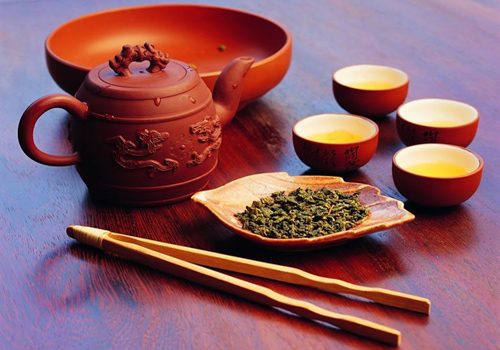
One of the primary reasons I was drawn to Chinawas for its traditional culture.Since I began studying Chinese language and history, I have acquired a great deal of appreciation and interest in this countrys cultivated arts and time-honored ways of life.An aspect Im particularly fond of, as mentioned in my last story, is one of the enduring ancient arts that can still be enjoyed today: tea.
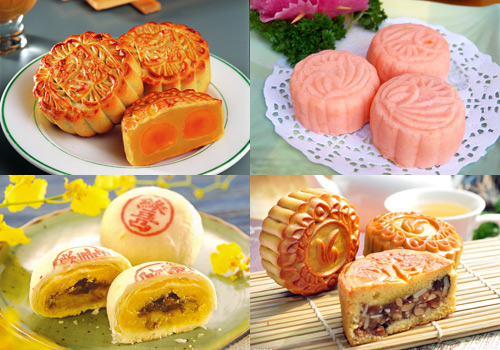
The hot summer has faded away with the ending of August, cool breeze in the early morning just implies the arrival of autumn, the time for people to look forward to the Mid-autumn Festival (中秋节, Zhongqiu Festival in Chinese), the only grand traditional festival of Chinese in the second half of the year, and after which just following the popular outing season with the pleasant climate in the autumn prime.
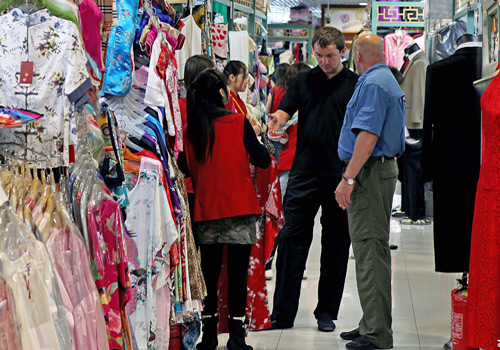
For many western countries, China is the extreme representation of otherness. Starting from this idea, many of our unconscious cultural behaviors can pop up when living or traveling in the country, sometimes irritating or even offending Chinese people without willing to. In order to avoid such embarrassing situations and experience the best moments in China sharing with the locals, here are the 10 most important things to pay attention not to do with respect to Chinese culture, all coming from personal experiences during my one year and a half living in China as a French student, teacher and Website English Editor in Visitourchina.com.




